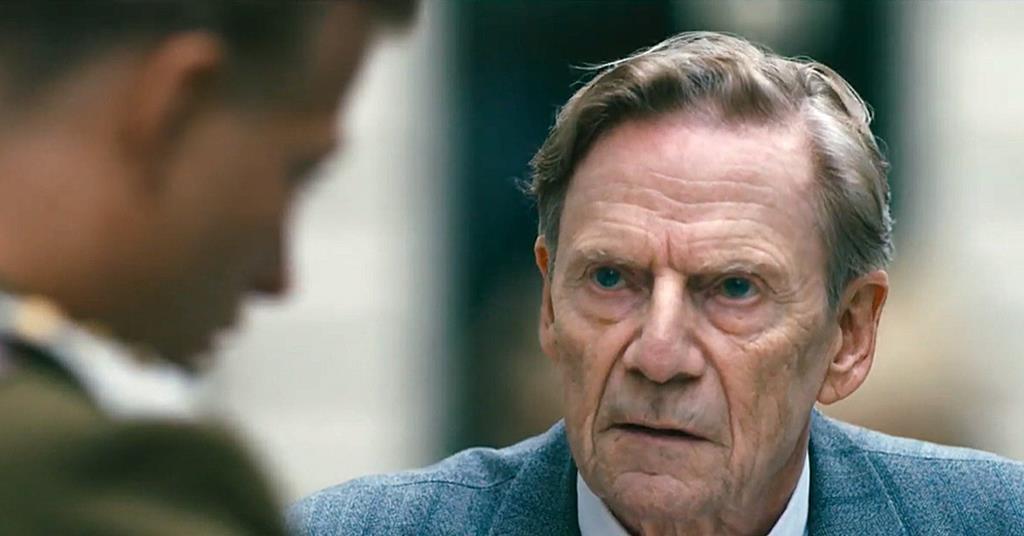The stronger material in Into the Darkness, a generally underwhelming period piece from Danish veteran Anders Refn (father of Nicolas), suggests an inversion of Schindler's List: it's the story of an industrialist who proves only too keen to hitch his wagons to those of the invading Nazis. It's fictitious, but it's fiction that engenders the sobering thought that there were almost certainly more of these types of businessmen in lived reality than there were heroic Schindlers. We're set down in 1940, just in time to witness the anniversary celebrations of loaded electronics magnate Karl Skov (Jesper Christensen) being interrupted by an impromptu flypast from the Luftwaffe. For a while, Skov's able to maintain the pretence of business as usual. "I'm sure things will work out all right," he shrugs to wife Eva (Bodil Jørgensen) as two of the family's Jewish friends are hauled in for questioning by the local police. When those friends are placed in custody, he seems no more troubled: "Luckily, it's just for a single night." This, of course, is how it begins. For Skov, everything's fine so long as the Nazis keep his factory's power supply on and a steady stream of orders coming in, while his tall, upstanding sons and daughters provide their own welcoming committee, lining up to swoon before the dashing new arrivals in their shiniest of uniforms. One reason Refn was presumably keen to revisit this chapter of Danish history now is that it offers a cautionary tale on what happens when ordinary folk try to make nice with fascists. Skov's hardly some cackling, moustache-twirling villain, rather a fatally naive, Canute-like figure, striving to preserve the status quo at any cost. He'll learn soon enough that there's just no dealing with some people - but he'll do so the hard way.
The film around him, alas, is proving far too soft to drive its intended points home. At 152 minutes, Into the Darkness rapidly assumes the look and feel of a two-part Sunday night miniseries bolted together for wider export: boxy and sluggishly arrhythmic, flabbed out with subplots involving those interchangeably handsome offspring which one suspects were written in to sex the whole thing up. (Christensen's typically assured, but the character eventually gets crowded out.) You'd never guess from this that Refn made his name as an editor of repute, for Lars von Trier and others; installed in the director's seat, he's apparently resolved to stretch his limbs a little bit. Fine, but in doing that, he and co-writer Flemming Quist Møller succumb to a variant of exactly that complacency they set out to dramatise. One of their film's limitations is that it never moves too far away from Skov's bright, well-staffed, Gosford-like country house - there are endless dinner parties where representatives of the moneyed class sit around wringing their hands and finding a dozen different ways to say "it couldn't happen here" - and even when we do, we're still moving in the same cloistered circles: there are at least two scenes too many in a mock-up jazz club. (I'm assuming the musicians are Refn's mates.) The real darkness of the Nazi project is almost nowhere to be seen; its worst crime within the film is to break up a nice, posh happy family. Some of the political rhetoric we catch in passing - most pointedly one of Skov's pals' blinkered insistence that Denmark would be no better off under the other lot - lands horribly close to home in the UK of 2021, but the drama it's been entombed in is crying out to be tightened and sharpened. The finale, which really should land with the force of a punch to the viewer's gut, instead retains all the impact of a throw pillow.
Into the Darkness is now available to rent via Prime Video.

Poppycock!
ReplyDelete